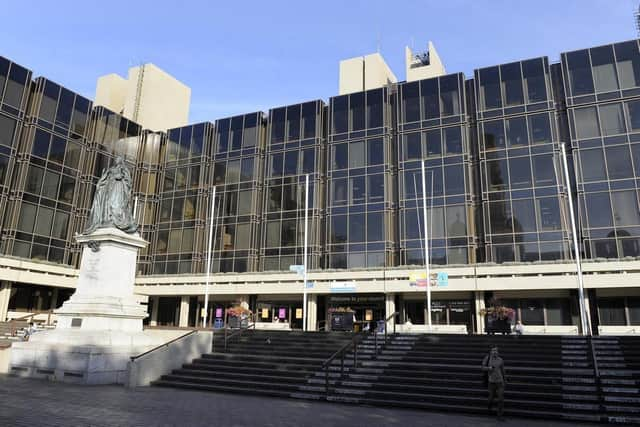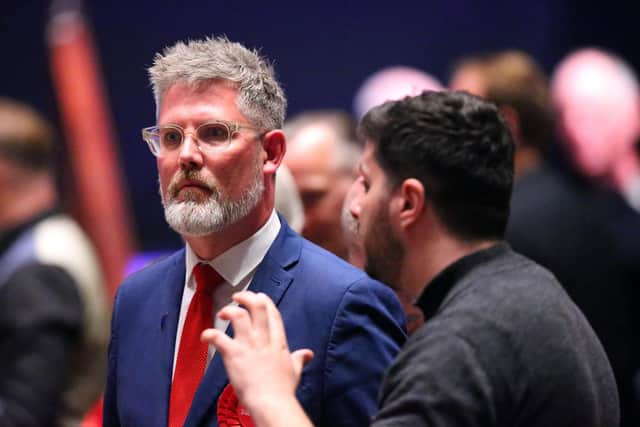Councillors in charge of Portsmouth scrutiny committees told to resign and pay back £3,000 in allowances for not holding any meetings
and live on Freeview channel 276
Four Labour and Conservatives elected as chairmen of the six panels in the last three years did not arrange a single meeting during their tenure, prompting calls for them to return their £3,000-a-year allowance and for those still holding roles to resign.
The committees set up to monitor economic development and education work last met in early 2020 while the Traffic, Environment and Community Safety Panel has only been convened in one of the last three years.
Advertisement
Hide AdAdvertisement
Hide AdBut panel chairmen said efforts to hold meetings had been hampered by processes that are 'no longer relevant' and that the pandemic had further affected this.


Statutory guidance issued by the now-prime minister Rishi Sunak in 2019, who was serving as minister for local government at the time, describes scrutiny committees as 'fundamentally important to the successful functioning of local democracy'.
‘Effective scrutiny helps secure the efficient delivery of public services and drives improvements within the authority itself,' he said. 'Conversely, poor scrutiny can be indicative of wider governance, leadership and service failure.’
In a report, the Centre for Governance and Scrutiny said these processes were 'essential for the successful working of any organisation' and decisions were better made when they were both challenged by, and involved, other councillors.
Advertisement
Hide AdAdvertisement
Hide Ad

Chairmen of the city council's scrutiny panels are paid a special allowance of £2,921 per year. Special allowances are paid to councillors who take on responsibilities above that of representing their ward and includes various amounts paid to group leaders and cabinet members.
But the city council's Lib Dem leader, Gerald Vernon-Jackson, said it was 'not right' for them to claim this when they have not held a meeting, particularly given the financial pressures facing the council.
'I don't think it's acceptable for people to be accepting public money when they're not doing the job,' he said. 'These roles are left to opposition councillors to scrutinise the work we do as the administration yet, in some cases, they've not arranged a single meeting.
'Those people should no longer be chairmen and they should repay that money. It's not right, in the middle of a cost-of-living crisis, to take taxpayers' money for a job you're not doing.'
Advertisement
Hide AdAdvertisement
Hide Ad

In May, a Labour-Conservative pact saw the two groups divide up the majority of committee chairman positions between themselves. Speaking at the time, they justified the move by saying it would give them greater scope to scrutinise the Lib Dem administration.
Councillor George Madgwick, the leader of the Portsmouth Independents and a member of the Economic Development, Culture and Leisure Scrutiny Panel, criticised the move at the time with members of his group not getting any of the roles.
He said the lack of meetings by some scrutiny panels justified his comments and that time and that anyone who had overseen multiple years without holding a meeting should resign as a councillor.
'I've been on this panel since May and have not a single bit of contact about it,' he said. 'Ultimately, with any failure like this, the buck stops with the chairman. It's a dereliction of duty.'
Advertisement
Hide AdAdvertisement
Hide AdAlthough the council's budget has reduced by more than £100m since 2010, overall spending on councillor allowances has increased by 13 per cent over the same period. The amount paid for special responsibilities rose by 10 per cent.
The Economic Development, Culture and Leisure Scrutiny Panel last met in February 2020 and has been led by Labour councillor George Fielding since then.
He said he 'could have done more' but that an overhaul of the system was needed to improve processes and to give panels more autonomy.
'Before Covid, the special scrutiny management panel would review topics to be considered by the various scrutiny panels,' he said. 'That hasn't happened since, although we could have done a bit more to push them.
Advertisement
Hide AdAdvertisement
Hide Ad'It's not joined up properly. We are not going over things raised in cabinet but topics suggested by the scrutiny management panel and that isn't happening.'
He said he hoped the system would be changed through the ongoing constitutional review being carried out by councillors to find ways to give it more relevance.
Conservative councillor Ryan Brent has been chairman of the Education, Children & Young People Scrutiny Panel - which has not met since January 2020 - for the last two years. He echoed the points made by Cllr Fielding.
'I agree that processes need to be developed to facilitate scrutiny topics,' he said. 'The wider constitutional cross-party working group should incorporate an element of this into their overall review.
Advertisement
Hide AdAdvertisement
Hide Ad'The Education, Children and Young People Scrutiny Panel will have published a report before the purdah period (April) in 2023.'
The council’s scrutiny panels are; Economic Development, Culture and Leisure Scrutiny Panel; Education, Children & Young People Scrutiny Panel; Health Overview & Scrutiny Panel; Housing & Social Care Scrutiny Panel; Scrutiny Management Panel; Traffic, Environment & Community Safety Scrutiny Panel.
The council’s website says: ‘Scrutiny and review panels will meet on a regular basis in accordance with a timetable to be published by the Local Democracy Manager. Additional meetings may be called from time to time as and when appropriate. A scrutiny and review panel meeting may be called by the chair of the relevant scrutiny and review panel, by a quorum of members of the panel or by the Local Democracy Manager if it is considered necessary or appropriate.’